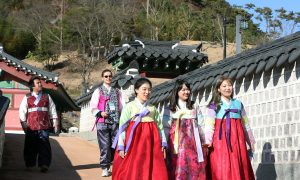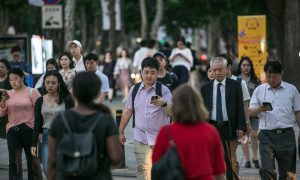As one of the world's economic powerhouses, Korea attractsimmigrants. Whether it's for work, study, family reunion, or seeking a better quality of life, more and more foreigners are choosing toImmigration to Korea. However, while Korea's modern infrastructure and high quality of life make it an ideal destination for immigrants, there are many challenges to overcome in the process of adapting after immigration.
This article will take you inside the inLife as an immigrant in KoreaWe will share the real-life experiences of immigrants, the adaptation process, the challenges they encountered, and how they overcame those challenges to help you better integrate into Korean society.
I. Language barriers: starting with language learning
For most expats, language is one of the biggest challenges encountered upon immigration. While many people in Korea's major cities can speak English, Korean remains the primary language of communication in everyday life and at work. When first arriving in Korea, the language barrier is often confusing and unsettling.
Adaptation and response
- Learn Korean: While English is acceptable in some settings in Korea, mastering the Korean language is key to integrating into Korean society. There are many language schools in Korea that offer Korean language classes, and many community centers in major cities offer low-cost Korean language classes. By attending these classes, you can improve your ability to speak, read, and write Korean.
- linguistic environment: Living in a Korean-speaking environment is also a good way to improve your language skills. For example, you can enhance your understanding and application of the Korean language by watching Korean dramas, listening to Korean radio, and making friends with local people.
challenge
- Initial communication difficulties may be encountered, especially when shopping, going to the doctor and interacting with neighbors.
- For work scenarios that require writing reports in Korean or communicating with Korean clients, a lack of language skills can affect performance.
II. Cultural Differences: Adjustment of Living Habits and Socialization Styles
Korea has a deep historical and cultural background, and the combination of traditional and modern social customs is both refreshing and challenging for many foreigners. Korea's collectivist culture, which emphasizes teamwork, respect for elders and social harmony, differs greatly from the individualistic culture of many Western countries.
Adaptation and response
- Respect for local culture: In Korea, respect for the elderly is a traditional virtue, and respect for elders and the use of honorific language is a must in social situations. Meanwhile, the table culture in Korea is also different, and you need to pay attention to etiquette such as not grabbing the food first and the elders moving the chopsticks first when eating.
- Understanding workplace cultureKorean workplace culture emphasizes relationships between superiors and subordinates, with strict respect for superiors in particular. In the workplace, you have to get used to the rhythm of "arriving early and leaving late", and teamwork and collective activities, especially at company gatherings and events, are often centered on "unity".
- way of socializing: Making friends with Koreans usually takes more time and patience. Koreans tend to build deep relationships through common activities (e.g., coworker dinners, common interests, etc.). In this regard, foreigners may need more adjustment time.
challenge
- When you first arrive in Korea, you may feel isolated socially, especially if you are slow to warm up to the locals.
- Koreans live a fast-paced life, and the high-pressure environment in the workplace may make it difficult for new foreign workers to adjust.
III. Cost of living: high rent and daily expenses
The cost of living in Seoul, the capital of South Korea, as well as in other major cities, is relatively high, especially in terms of rent and daily spending. Especially in the center of Seoul, rental prices can be stressful for first-time foreigners.
Adaptation and response
- Rational budget planningJust now.Immigration to KoreaWhen doing so, it is crucial to have a good budget plan. You can choose to live in areas that are conveniently located but have lower rents, such as some districts on the outskirts of Seoul, which are a little farther away from the city center but have relatively cheaper rents.
- Shopping and Consumption Habits: Prices in Korea are high, especially for imported goods, but locally produced food and goods are relatively cheaper. By understanding the local market and choosing more cost-effective spending options, you can effectively reduce your financial burden.
challenge
- In major cities such as Seoul, the cost of renting an apartment takes up a large portion of an immigrant's living expenses.
- For expatriates, dining, entertainment and other living expenses may also be higher than expected.
IV. The health-care system: efficient but complex
Korea has a very advanced healthcare system that provides high quality medical care. However, understanding the health insurance system, making appointments to see a doctor, and dealing with unexpected health problems can also be a challenge for expats new to Korea.

Adaptation and response
- Enrollment in the National Health Insurance: All foreigners residing in Korea are required to enroll in Korea's National Health Insurance (NHI). By joining the NHI, you can enjoy more favorable reimbursement of medical expenses.
- Medical Experience: Although medical services in Korea are very efficient, sometimes it may be necessary to hire an interpreter or learn how to communicate with a doctor due to language communication problems. Many hospitals also offer services in English, so you can make inquiries beforehand.
challenge
- Language can be a barrier when seeking medical treatment, especially in some hospitals that do not offer English language services.
- The health insurance process is more cumbersome and may be a little uncomfortable at first.
V. Community integration: neighborhoods and social support
Korea is a country of tight-knit communities where neighborly relations are often very important. After immigrating to Korea, it is also a challenge for many expatriates to integrate into the local community and build friendly relationships with their neighbors.

Adaptation and response
- Participation in community activities: Many communities hold regular group activities such as holiday celebrations and group dinners. Participating in these activities will not only help you make new friends, but also help you better integrate into the local culture.
- Connecting with Neighbors: In Korea, there are more frequent interactions between neighbors, and it is possible to build friendships with those around you by taking the initiative to say hello and help take care of your neighbors.
challenge
- Initial language and cultural differences may make integration into the community more difficult.
- It takes time to build strong friendships with native Koreans, as Korean society is sometimes more closed.
VI. Conclusion
Overall.Immigration to KoreaLife in Korea is full of opportunities, but it also comes with many challenges. From language barriers to cultural adaptation, high cost of living to the complexity of the healthcare system, each stage of immigrating to Korea is filled with different experiences. However, by actively learning the Korean language, assimilating into the local culture, planning their economic lives, and getting involved in their communities, expats are well on their way to establishing a stable, comfortable life in Korea.
With time, the adaptation process will become smoother and Korea will become your new home, bringing you more opportunities and happiness.






